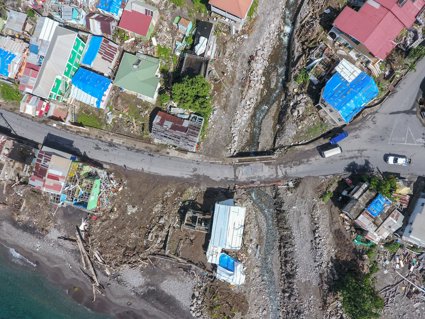
Yung-Fang Chen
Assistant Professor of Disaster Management and Emergency Planning, Coventry University
The knowledge and skills that you have learned in the geography degrees will definitely support the tasks in disaster and emergency management and humanitarian professions
I have been conducting research in disaster risk management and humanitarian work for almost 20 years. My research includes risk assessment and communication, post disaster reconstruction, disaster risk reduction education and emergency response training exercises.
What is the importance of location in the context of DRM?
In research projects I have been involved in, GIS has always played an essential part in the data presentation and analysis; in risk communication and to facilitate emergency response exercises.
How do the spatial aspects interact with the other elements of DRM?
I am very lucky to be able to work with many physical and human geographers to carry out my research as we recognise the significance of geographical information to enhance disaster and emergency management decision making.
How do you apply geography in your work?
Disaster and emergency management covers areas in risk mitigation, preparedness, response and recovery. All of the phases need spatial information to support the decision making. For example, to be able to investigate the areas at risk, we need hazard maps; to understand where are people in need, we need vulnerability data. During an emergency, spatial information can help to identify the impact areas; this information can assist decision making on the recovery.
How would you encourage geographers to work with DRM?
Recently the United Nations Office for Disaster Risk Reduction (UNDRR) shared an article Desperately seeking climate science translators: the humanitarian community urgently needs a new profession recognising that there is an urgent need to create jobs to translate climate science so it is possible to link the complex climate data with the public, and to support humanitarian work and policy making. The knowledge and skills that you have learned in the geography degrees will definitely support the tasks in disaster and emergency management and humanitarian professions. Hence, look out for jobs in these areas.